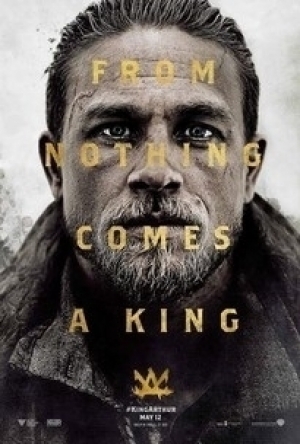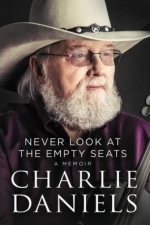
Never Look at the Empty Seats: A Memoir
Book
A tale of hard work, musical discovery, and faith, Charlie Daniels’s journey has been one of a...
Music biography
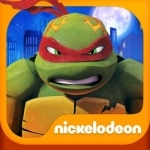
Teenage Mutant Ninja Turtles: Portal Power
Games and Entertainment
App
Help the Teenage Mutant Ninja Turtles travel through portals and fight evil in this action-packed...
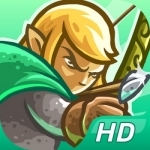
Kingdom Rush Origins HD
Games and Entertainment
App
***Best Mobile Game 2015 DICE Nominee*** The most addicting tower defense game returns in an...
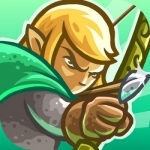
Kingdom Rush Origins
Games and Entertainment
App
***Best Mobile Game 2015 DICE Nominee*** The most addicting tower defense game returns in an...

ProSieben MAXX – TV, Mediathek
Entertainment and Lifestyle
App
KOSTENLOS FERNSEHEN mit der ProSieben MAXX TV App für Sport, Anime Action, Dokus, US-Serien und...

Kickass Commandos
Games
App Watch
Lock and Load! It's time to Kick Ass. Grab your machine-gun, flamethrower, rocket launcher and...
games

FINAL FANTASY VI
Games and Entertainment
App
==== We have received a report that the in-game language switches to English when the device is set...
Bob Mann (459 KP) rated King Arthur: Legend Of The Sword (2017) in Movies
Sep 29, 2021
“‘Ere, OK bruv. So this is dun by that geezer Guy Ritchie – yer know, the one that dun that Sherlock Holmes with the Iron Man geezer Robert Junior Downey, that one. His new film is a rip-roarin’ acshun movie what retells da Arfurian legend in a novel new way.
That Hulk bloke Eric Bana is Arfur’s farfer an’ ‘e’s ‘avin’ a few problems wiv ‘is bruvver Vortigern (Jude Law, who’s a bi’ ov a cockney ‘imself, but ‘ere speaks like a posh bloke. Know what I mean?) So ‘e (Vortigern dat is) gets some magical ‘elp from some slippery watery bints in a puddle and so ‘is dad puts ‘is God Forbid in a boat an’ sends ‘im down da river ter The Smoke ter live wiv some prozzies.
But ‘e grows up big an’ strong an’ ‘andy wiv a sword. His friends tell ‘im ter get aaaht ov town as da King’s blokes are lookin’ fer da young geezer who would be king. An’ e says like “Scapa Flow sowf ov da river at dis time ov night. Are yew mad?”. So e gets caught like an’ gets tested by some famous football bloke ter pull a big sword aaaht ov just a random bi’ ov stone (nod, nod, wink wink, nice twist – ssshhh!).
The Vortigern bloke is very cross an’ tries to kill ‘im but ‘e gets rescued by some bird who can make birds, lol, an’ other fings do what she wants. So can Arfur beat ‘is uncle? Gawdon Bennet, I’m not gon’a tell yew da whole darn fing! Yer’ll ‘ave ter go an’ watch i’ ter find out.”
Thanks Alfie. Couldn’t have said it better myself!
The quirky style of Guy Ritchie isn’t one that you would think would translate well to the Arthurian setting, and as the film starts you tend to think you were right! But if you give it a chance it wears you down into acceptance and then – ultimately – a lot of enjoyment.
Jude Law is deliciously evil mixed with a heavy dose of mad, and delivers the goods.
Charlie Hunnam who plays Arthur (no, I hadn’t heard of him either but he was in the “Lost City of Z”) does a decent job as the medieval hunk, although he seems at time to have taken voice coaching in ‘Olde-English’ from Russell Crowe, since the lad’s Geordie accent seems to wander from Cockney through central southern England to Liverpudlian at one point (definitely channelling a young John Lennon)! Relative newcomer, the Spanish actress Astrid Bergès-Frisbey is effectively weird as the mage.
Particularly noteworthy (no pun intended) is the superb action soundtrack by Daniel Pemberton (“Steve Jobs“, “The Man from U.N.C.L.E.“) which propels the action really well and contains some standout moments.
Also a standout in the technical categories is the editing by James Herbert, who did both of Downey Junior’s “Sherlock Holmes” films (in a similar style) and also “Edge of Tomorrow“. The style is typified with Arthur’s growth to manhood in the streets of London which is stylishly done.
I saw the film in 3D – not a particularly favourite format – but quite well done, although falls into the “trying too hard” category at times with lots of drifting embers… you know the sort.
It’s not bloody Shakespeare. It’s not even the bloody Arthurian legend as you know it. But it is bloody good fun if you let it in.

Concerned Ape's Haunted Chicolatier
Video Game Watch
Hey everyone, After dedicating 10 years of my life to Stardew Valley (and counting), the time has...
Concerned Ape Haunted Chocolatier Stardew Valley

